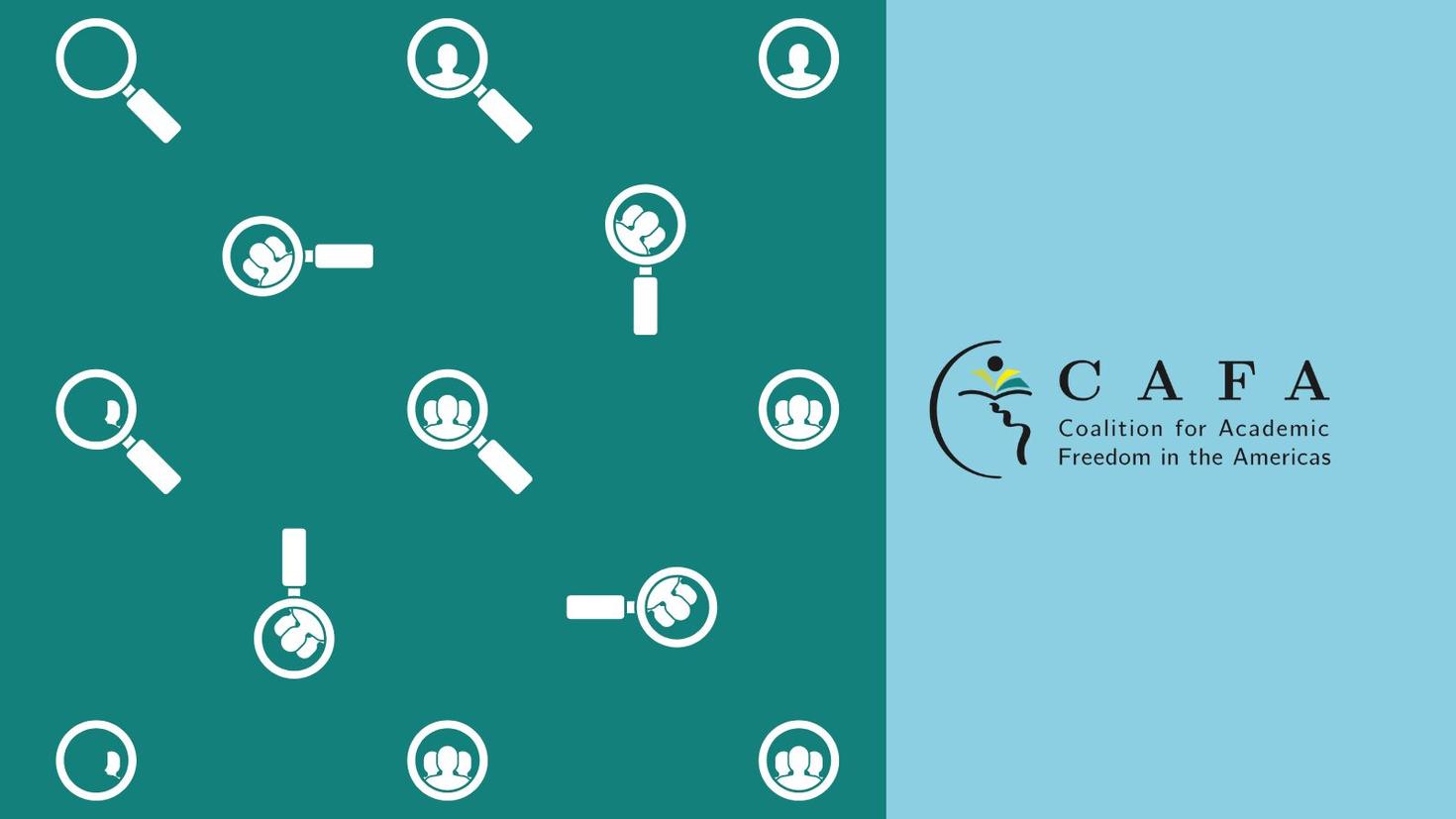The Coalition for Academic Freedom in the Americas (the Coalition) fosters the promotion, protection, and respect for academic freedom, with the goal of developing relevant human rights standards that serve to protect higher education spaces, to identify best practices, and to strengthen democratic principles in the Americas.
The Coalition, chaired by the University of Monterrey, Scholars at Risk, and the Human Rights Research and Education Centre (HRREC) at the University of Ottawa, has become a growing network of scholars and human rights advocates in the Americas focused on educating, researching, and defending academic freedom in different political and social contexts.
In recent years, international bodies have increasingly published reports and adopted standards aimed directly at protecting academic freedom and university autonomy around the world. In the Americas, the adoption of the Inter-American Principles on Academic Freedom and University Autonomy in December 2021 represented a milestone to foster these protections under the Inter-American Human Rights System.
Despite these important advancements, higher education continues to face widespread attacks around the world. Scholars at Risk documents many of these pressures in its the latest Free to Think report, including: United States legislation aimed at limiting teaching and research, particularly on issues of gender and race; the Nicaraguan regime’s arbitrary takeover of dozens of universities, together with the expulsion, imprisonment, deportation, and stripping of citizenship of academics and students; the Mexican government’s adoption of legislation seeking to control universities and research centres; and the political targeting and deprivation of the rights to free speech and assembly of academics and students in Venezuela and Peru.
In our 2022 and 2023 conferences, the Coalition focused on the content of the Inter-American Principles, the situation of academic freedom in specific countries in the Americas and gender-based violence on higher education campuses, among other topics. For the third conference, we will continue to work on the promotion, protection and implementation of academic freedom and university autonomy. This includes but it is not limited to coordinating/planning responses to attacks on higher education institutions, public interest litigation to protect university spaces, as well as laws and policies implementing (or conversely, undermining) the Inter-American Principles and other human rights norms applicable to academic freedom and university autonomy.
About the 3rd Conference on Academic Freedom
The 3rd conference of the Coalition will take place on November 20 & 21, 2024 at the University of Notre Dame (Washington, DC campus). This conference will be hybrid, combining in person and virtual presentations.
The scientific committee for the conference and editorial committee for a special publication that will be produced after the event is composed by Professor Isaac Nahon-Serfaty, Professor Joao Velloso and Salvador Herencia-Carrasco (University of Ottawa), Professor Rafael Ibarra Garza (Universidad de Monterrey), Jesse Levine (Scholars at Risk). Professor Danielle Anne Pamplona (Pontificia Universidade Católica do Paraná) and Professor Estela Rivero (Pulte Institute for Global Development, University of Notre Dame).
This call for papers seeks contributions that highlight challenges and opportunities in protection, advocacy, litigation and best practices in academic freedom and university autonomy. Possible topics include but are not limited to the following:
- Adoption of academic freedom policies or regulations by higher education institutions and national or local government authorities.
- Implementation of the Inter-American Principles of Academic Freedom and University Autonomy.
- University autonomy and authoritarianism in the Americas.
- Regional or country-focused studies related to academic freedom or university autonomy.
- Academic freedom and transitional justice, as well as models for universities in post-conflict spaces.
- Academic freedom and the right to education.
- Conflicts between freedom of expression and academic freedom in the university space.
- The impact of major information and technology corporations on academic freedom.
- Responding to sexual and/or gender-based violence and sexual harassment within the university space.
- Participation of students and/or student unions or organizations in the promotion of academic freedom or university autonomy.
- Diversity and governance in higher education institutions.
- Indigenous communities and the right to academic freedom and higher education.
- The role of higher education accreditors, ranking systems, and other “industry” forces.
- Inter-regional and international dimensions to academic freedom in the Americas.
Submission of abstracts
Interested parties must send an abstract by March 30, 2024. Each abstract should be no longer than 500 words, accompanied by a 100-word personal bio, including contact information and professional affiliation. Individuals whose abstracts are selected will be notified. The Coalition accepts proposals in English, French, Portuguese, and Spanish.
All abstracts should to be submitted to the following email: [email protected].
Publication of conference papers
Persons interested in submitting a paper to present at the Conference will be eligible to submit their research for consideration on a publication that will be edited by the Universidad de Monterrey or on CAFA’s website.
First drafts are expected by September 30, 2024. Drafts should be between 12–15 pages in length, presented in Times New Roman 12, 1.5 spacing. Use footnotes, not end notes. More information regarding the dates and guidelines for the publication will be announced in due course.
Some financial assistance to attend the conference might be provided to those that submit paper proposals approved by the editorial committee.
